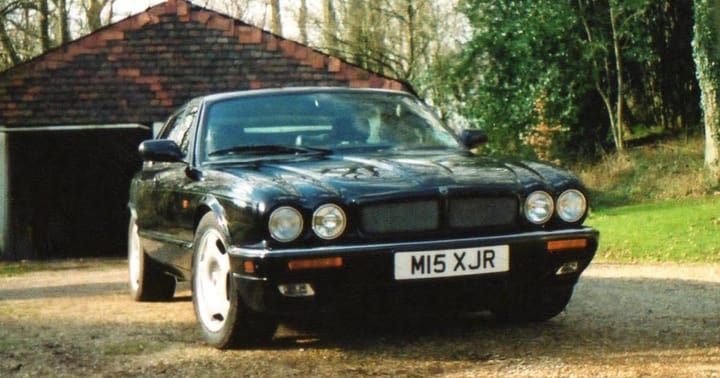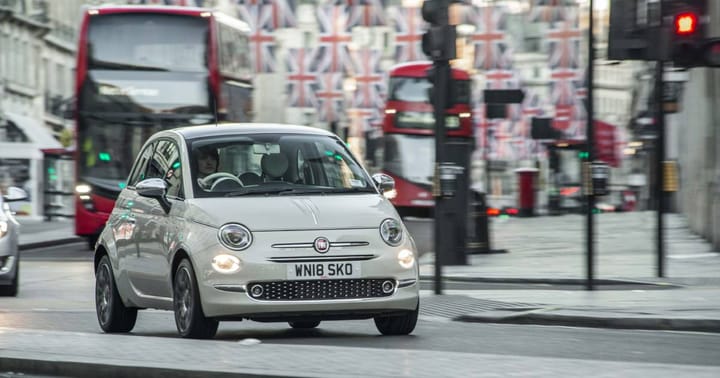Welcome to Right Hand Drive
Why RHD exists, and what electric cars have in common with diesel ones

Starting a new publication is either a shrewd move or a foolhardy mistake. I believe it will prove to be the former, clearly – why else do this?
Having spent the last decade or so in automotive media researching and writing about cars, transport, and vehicle strategy I feel unable not to launch Right Hand Drive. I believe that in many respects drivers – IE most adults – are poorly served by central and continental government policies that decree petrol and diesel cars old hat, and electric cars the answer to all prayers. There are two major issues with this.
The first is that we should be critiquing and holding to account authorities and their edicts, not cheerleading them. While it's fair to say that reviewers and reporters can only review and report on the cars that manufacturers release (which explains the glut of EV coverage) a proper interrogation of the forthcoming ban on the sale of new petrol and diesel cars in 2035 has been largely lacking, which is all the more frustrating given the close scrutiny and rigorous analysis such a monumental decision clearly warrants.
This is all the more problematic when the second major issue is that in comparison with the technology they are supposedly replacing, electric cars are not very good. This is not the same as saying they are unpleasant to drive, as the low noise, vibration and harshness levels intrinsic to electric vehicles makes them extremely relaxing. Getting down to first principles, however, a car is not an isolation pod, but a tool for conveniently transporting people and goods over distance in comfort.
A tool that can be used for 500 miles and then has to stop for five minutes to replenish its energy source is a better tool than one that can be used 250 miles and then has to stop for 45 minutes to do the same.
Anyone who wishes to muse on edge cases, use cases, future cases, tax cases, urban cases, emissions, manufacturing, maintenance, running costs or anything else is free to do so – and do so they do. That’s fine and dandy for me: fill your boots. All the more reason for a publication that takes an alternate view to exist.
What does this have to do with diesel?
History may not repeat itself, but it sure as heck rhymes:
- In 1992, diesel cars held 17% of the European market
- By 2015 this had risen to 52%
- In 2023 the EU diesel’s share was down to 13.6%
Those are massive swings, and they didn’t happen by accident or natural changes in consumer taste: they came about due to taxation policy, media and marketing.
Cars registered from 2001 to 2017 in the UK that emitted under 100 grams of carbon dioxide per kilometre were exempt from all road tax, while company-car taxes favoured low CO2 cars. Diesel cars emit far less CO2 than petrol ones, hence the market swing.
These policies (and comparable ones on the Continent) were implemented to reduce CO2 emissions in accordance with the Paris climate agreement. Some voices urged caution, highlighting that diesel fuel emits large amounts of soot (‘particulate matter’) and nitrogen oxides, or NOx (far worse for humans than CO2) when burnt. These voices were, however, almost universally ignored.
Manufacturers never had it so good. Diesel cars were long known to be more efficient than petrol ones, while improvements in turbocharging technology meant that by the 1990s they could be as quick as them, too.
The vast government incentives that entered the mix at the turn of the millennium provided a gift-wrapped marketing strategy for the car industry, which not only had a fresh way of selling its wares (never underestimate how tough and expensive effective marketing is), but could also charge a bit more for a diesel car over a comparable petrol one, partly as diesel engine blocks have to be stronger, hence more expensive to manufacture. The media generally endorsed and embraced these policies, with most publications taking a pro-diesel view.
Then it all went horribly, horribly wrong.
The emission scandal that kicked off in 2014 was the catalyst (no pun intended) for diesel’s downturn, as some car makers were found not to have entered into the spirit of emissions testing; but the collapse of diesel technology as it stood at the time would most likely have come sooner or later, as concerns about particulates and nitrogen oxides could only be ignored for so long, regardless of carbon dioxide emissions.
Diesel’s death knell sounded as soon as policymakers realised you could tie a car’s number plate to its emission standard, thereby allowing authorities to charge or fine owners of older diesel cars for entering certain geographical areas, penalising them for using the very vehicles they were incentivised to buy only five minutes previously.
Glossing over the fact that today’s diesel cars are near enough as clean as petrol ones thanks to particulate filters and NOx-busting AdBlue, we can see comparable themes around electric cars:
A problematic fuel type incentivised with vast tax breaks; dissenting voices sidelined; and then: disaster.
I am not implying any scandal or malfeasance, and nor is this to say that differences don’t exist between these two scenarios: the efficiency and relaxed, torquey nature of diesel cars make them excellent tools – they wouldn’t have taken over half the market if they weren’t. By contrast, electric cars are hugely compromised, hence why unincentivised private buyers hardly touch them. Also different was the fact that car manufacturers made money on diesel cars: turning a profit is far harder on an EV.
We haven’t had an EV disaster yet, though there are signs things are far from peachy. Issues include: geopolitical concerns related to over reliance on narrow supply chains for battery materials; residual values; electricity supply, balancing and mix; socio-economic considerations around vehicle affordability and convenient charging; oh, and fines of £15,000 per vehicle for manufacturers who fail to ensure 22% of the cars they sell in 2024 are zero emission (rising to 80% by 2030); for reference, in 2023 this figure stood at just 16.5%.
Another difference between the diesel issue and the electric one is that those who sounded warnings over diesel were generally just ignored, whereas EV sceptics are often accused of all sorts of things, from political extremism, to being in the pockets of ‘big oil’ (where’s my cheque?) and spreading FUD (fear, uncertainty, doubt) – as if raising concerns about policies mandating propulsion and energy-storage methods is in some way conspiratorial or agenda-driven.
Goodness knows why the narrative is as it is. Social media is a factor, for sure, while those in positions of seniority and influence are often well placed to make use of EV incentives, and may struggle to relate to the fact that not everyone is in a position to enjoy a Salary Sacrifice electric car, a driveway on which to charge it, and a job they can do from an iPhone while they wait for their electrons to shuffle about if they have to use a public socket. Oh, and the sheer horror of being seen as unecological.
There are certainly some stories knocking about that highlight lesser issues – car parks are unlikely to collapse under the additional weight of EVs, I’d wager. Similarly, while electric-vehicle fires are different beasts to thermal incidents involving petrol and diesel, I do not believe this is a major concern given a) how rare such eventualities are b) the flammability of oil derivatives and c) the fact the fire brigade is competent and trained in the handling EV fires.
But I digress. Returning to the theme of first principles, Right Hand Drive won’t just focus on what I believe to be the foolhardiness of EV policy – that would make for a fairly monotone publication.
RHD will major on op-eds related to all aspects of cars and transport strategy, while also hosting satirical pieces and bits news that catch my eye. I’ll also churn out the odd SEO (search engine optimisation – IE Google friendly) article in the hope of bumping up website traffic – though in recognising that SEO-motivated pieces can be a little dry, I’ll throw some colour into these, titling them SEOpinion partly because I like the name.
RHD also guarantees to never use artificial intelligence. Every word you read on this site will be penned by a human – tpyos, inelegant syntax, and points about which you disagree included.
Welcome to Right Hand Drive. Thanks for reading, and if you like the idea of RHD, do please share this article and website and give us a follow on Twitter – online publishing is a tough old landscape, and every click helps.



